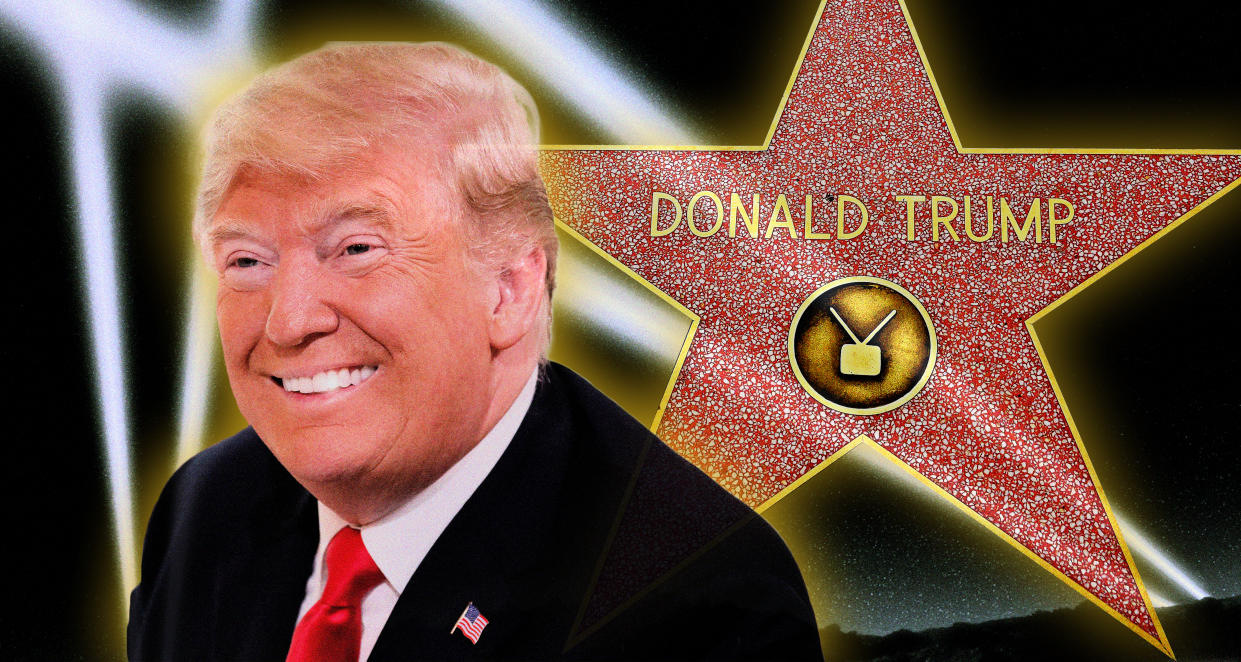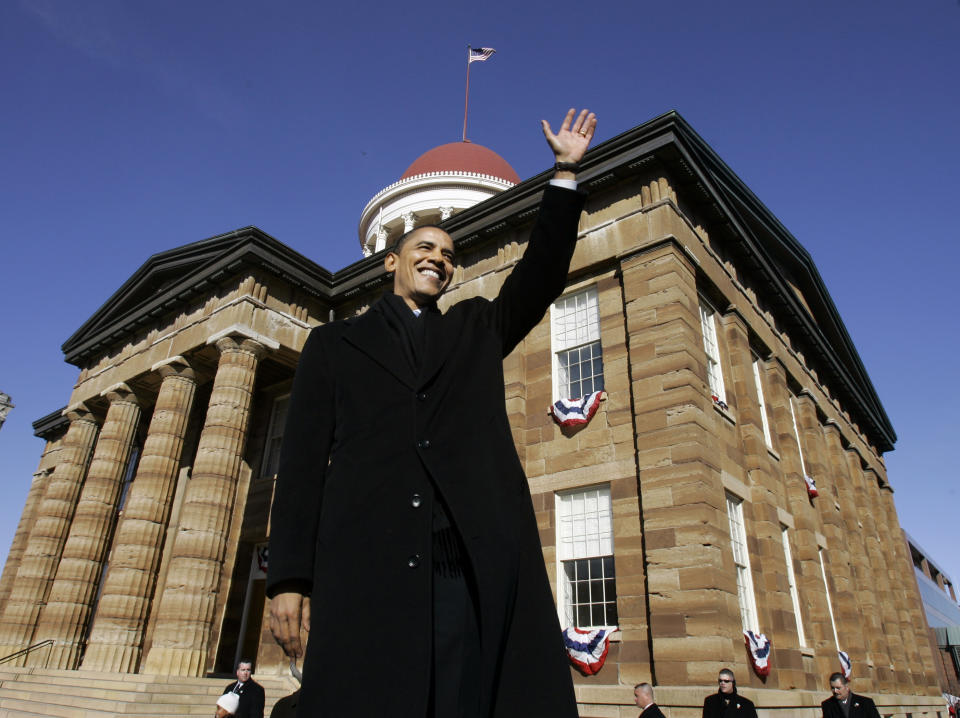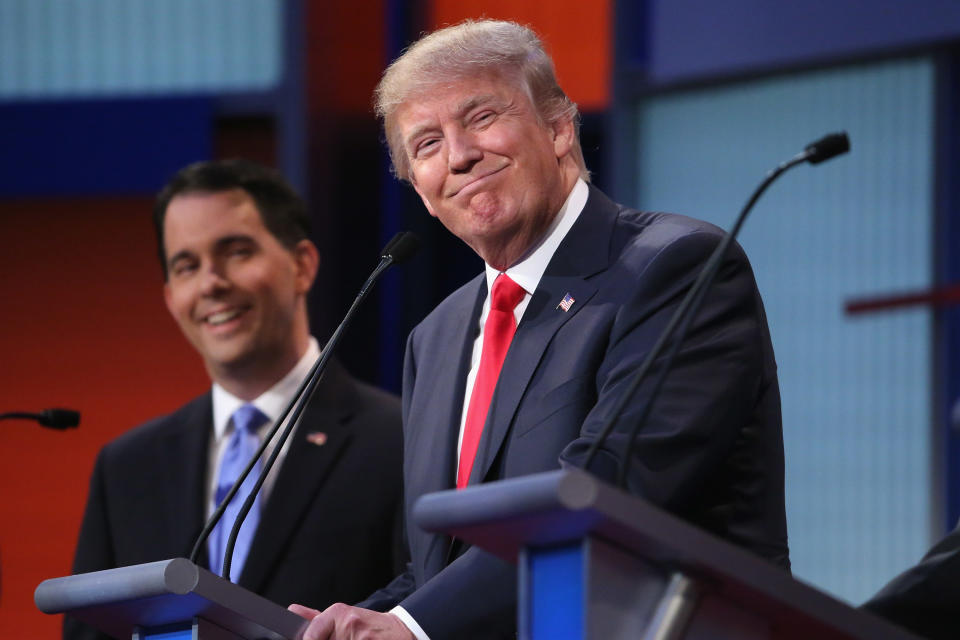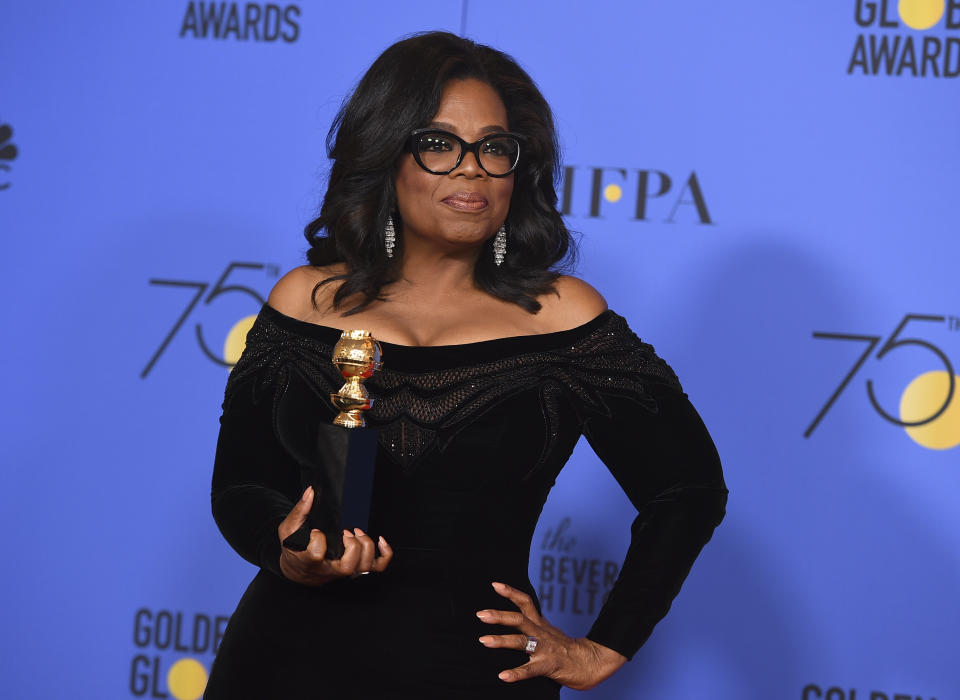No experience necessary? Trump and the future of the celebrity candidate

In 2016, angry American voters ditched 227 years of precedent and, for the first time, elected a president with no prior political or military experience. Now, as a new crop of candidates weighs their chances of ousting Donald Trump from office in 2020, the question is whether governmental experience still matters.
“Trump sort of blew up the model, but I think he’s an example of exactly what you don’t want in a president,” former Vermont Gov. Howard Dean told Yahoo News. “People want to see someone who knows what they’re doing.”
Dean, an unsuccessful candidate for the Democratic presidential nomination in 2004, thinks the Democrats would do well to nominate a younger candidate in 2020, someone who might not have the extensive Washington background of say, former New York senator and Secretary of State Hillary Clinton.
“Government is not looked upon as favorably as it once was, even by people in my party,” Dean said. “But I think they’re not going to want to put someone who doesn’t know anything about government in, because we’ve seen what happens when you do that.”
For decades, the debate over presidential preparedness was centered on whether it was better to first be a U.S. senator or the governor of a state. While senators were seen as having the advantage of understanding how Washington works, running a state as governor was viewed as executive preparation, like learning to ride a bike with training wheels.
When he announced his presidential candidacy in 2007, then Sen. Barack Obama was hammered by critics — Democrats and Republicans alike — over what they considered his lack of experience.

But Obama deftly parried that criticism, calling into question the value of experience itself.
“It amuses me lately how some folks in Washington have been talking about, ‘Well, we’re not sure that Obama’s got enough experience in foreign policy,’” Obama said at a speech in Atlanta. “These same folks who are talking about lack of experience are the same folks who joined up with George Bush and said [the war in Iraq] was a good idea, that somehow we were going to be made safer, that we are going to be greeted as liberators, that we are going to create a democracy in Iraq. Who’s inexperienced?”
In many ways, Trump followed a similar playbook, going on the offensive against Jeb Bush over the Iraq War, which was started by his brother, George W. Bush. Trump himself had even less experience in foreign policy than he did in domestic issues, which was almost none.
“Obviously the war in Iraq was a big fat mistake,” Trump said at a Feb. 13, 2016, Republican primary debate.
But even more so than Obama, Trump helped rewrite national perceptions on the question of experience, attacking others for the weaknesses in his own CV. Having been granted five draft deferments during the Vietnam War, Trump grabbed a third rail in American politics, portraying Sen. John McCain’s military service and five-and-a-half years as a prisoner of war as something less than heroic. “He’s not a war hero,” Trump of McCain at a campaign event in July of 2015. “He was a war hero because he was captured. I like people who weren’t captured.”
Taking advantage of an unusually crowded Republican field, Trump stood out from the pack by utilizing the novel strategy of openly mocking his political opponents. That was epitomized in an exchange with Sen. Rand Paul at a September 2015 Republican primary debate in which Paul was asked whether the idea of Trump controlling the nation’s nuclear weapons gave him pause.
“His visceral response to attack people on their appearance — short, tall, fat, ugly — my goodness, that happened in junior high,” Paul said. “Are we not way above that? Would we not all be worried to have someone like that be in charge of the nuclear arsenal?”
Unthinkable from a more conventional candidate, Trump’s response felt more like the inevitable punchline to a joke Paul had unwittingly set up.
“I never attacked him on his looks, and believe me there’s plenty of subject matter right there, that I can tell you,” Trump said with a smirk.

“There were, what, 16 people in the Republican field at the beginning, all of whom were either governors or senators,” Mike DuHaime, a Republican political strategist who worked for former New Jersey Gov. Chris Christie and former New York Mayor Rudy Giuliani, told Yahoo News. “At some level they all start to sound the same — ‘I created this many jobs, well, I created this many jobs, I voted for this tax cut, well, I voted for two tax cuts’— but Trump sounded different.”
Polling conducted in 2016 by the Pew Research Center noted the impact Trump was having on the electorate. In March of that year, less than a year after the New York billionaire formally announced his presidential bid, 50 percent of voters surveyed said they valued a hypothetical candidate with “experience and a proven record,” while 43 percent said they favored a candidate with “new ideas and a different approach.” When Pew asked voters the same question that September, after Trump had secured the nomination, attitudes had flipped, with 55 percent favoring new ideas and just 37 percent seeking a candidate with experience. Republicans accounted for an overwhelming share of the voters who shifted their attitudes.
“It’s not that Republicans distrust people with experience, I think it’s that they would rather see government more limited and that people with experience, by default, means that you believe in big government,” Republican strategist Rick Tyler, who served as Sen. Ted Cruz’s communications director in the 2016 presidential campaign, told Yahoo News.
Tyler, who characterizes Trump’s rise as “an experiment whose outcome is yet to be determined,” says voters should remain wary about electing business leaders with no prior governing experience.
“I don’t know what skills a CEO has that are actually directly applicable to being president, because if you think about it, they give directives and people follow orders and, in general, those things get done or people get fired,” Tyler said. “In the presidency, in order to get things done you have to pass legislation.”
In a Quinnipiac University poll in January, voters said, by an overwhelming 64-14 margin, that electing a celebrity as president was a bad idea. In the same poll, though, given their choice between two television personalities, they favored Oprah Winfrey over Trump, 52-39.
Former White House strategist Steve Bannon agrees that in the new political landscape, Winfrey would be the Democrat to pose the greatest challenge to Trump in 2020.
“I think we’re in a different era,” Bannon said in an interview last week with CNBC. “I think we’re in an era that media and understanding media and understanding how to communicate on a mass basis to the American people is so much more important than being in a state legislature.”
But is celebrity really all that’s required to get one started on the quest for highest office in the land?
“I think it’s enough to get you into the conversation, and then you have to win the debate going forward,” DuHaime said. “From a name ID point of view, Trump started with a brand. Oprah Winfrey would also start with that kind of brand.”

While Dean writes off Bannon as “a provocateur and a bomb thrower,” he doesn’t disagree that the most important quality for a Democratic challenger to Trump may not be the number of pages in his or her government résumé.
“I think experience is a consideration, but the real thing is personality,” Dean said. “You have to have someone who is going to punch Trump in the nose, figuratively, and just tell him to shut up and sit down without being rude about it. You have to tell him politely to shut up and sit down and that he’s an embarrassment. The public wants somebody strong.”
While prospective Democratic candidates like former Vice President Joe Biden, Vermont Sen. Bernie Sanders, California Sen. Kamala Harris and New Jersey Sen. Corey Booker have all shown an appetite to go after Trump, they can now all be portrayed as part of the Washington culture.
“Washington is a place with a different culture and they’re completely out of touch with what the ordinary people in this country are going through, and that’s true in both parties,” Dean said.
The trick, then, for voters seeking to replace Trump is to find that elusive candidate whose experience itself is not seen as a liability, but who still possesses the skills required to successfully navigate perhaps the most consequential job on Earth.
“Experience has become a burden in many ways. In a world where so much press attention ultimately becomes negative, a record can be something that people pore through and find contradictions and find fault with,” DuHaime said. “People who come from the celebrity world haven’t had to make those same tough decisions or tough votes and don’t have the negatives that come along with them.”
Oprah has disclaimed presidential ambitions, and the brief media boomlet for her foundered on examination of some of the fringe ideas she has championed on her show. Other business executives who have been rumored to be interested in the job include Mark Cuban and former Starbucks CEO Howard Schultz. Facebook founder Mark Zuckerberg’s moment seems to have passed even before his 35th birthday.
“Part of how Trump ended up being elected was that voters didn’t care if he had experience. They wanted him to blow up the system. In a sense they said, if the government is punished by us electing Trump, so be it,” Tyler said. “There’s an element of ‘I don’t really care what he does as long as he’s mad about it.’ That’s where we are today. We may discover in some not-too-distant future that it was a really bad idea.
“Right now we are living on borrowed time. Even though the president has not precipitated a major crisis, that doesn’t mean there’s not one coming.”
_____
Read more from Yahoo News:


